Let’s face it: obtaining and managing a suite of US credit cards as a Canadian can be a laborious process. You need to get an ITIN, keep an eye on your mail forwarding address, track your spending and FX impact, and plan out your strategy in terms of which cards to apply for.
Only you can decide whether or not the effort is worthwhile, so it’s useful to go into the process with a sense of what you can get out of it. To that end, let’s discuss some of the amazing things you can do with the points you earn from US credit cards.
Keep in mind that yes, American Express Membership Rewards points in the US can be transferred to Aeroplan, and Chase Ultimate Rewards points can be transferred to British Airways Avios… but we already have ways to rack up those points here in Canada, so I’ll be glossing over those options. Instead, we’ll focus on redemptions and points programs you can unlock that wouldn’t otherwise be easily achievable here in Canada.
1. Singapore Airlines KrisFlyer
Transfer partners: Chase Ultimate Rewards (1:1); American Express Membership Rewards (1:1); Citi ThankYou Points (1:1)
As far as frequent flyer programs go, Singapore KrisFlyer is one of the more useful ones out there. Award chart sweet spots are aplenty, and you can also add up to two additional stopovers to a round-trip redemption for $100 per stopover (on top of one free stopover), which can prove exceedingly useful.
Of course, we Canadians already have Aeroplan to help us fly on Star Alliance carriers, and we’d expect to something a little extra in return for the work we put into obtaining US credit cards. In KrisFlyer’s case, that little something extra comes in the form of redemptions on Singapore Airlines First Class and Suites Class.
You may have heard of Singapore Suites before – it’s the one with the “double bed in the sky”…

Singapore Airlines Suites Class
The airline has also recently launched a new Suites Class product as well, which looks absolutely stunning.
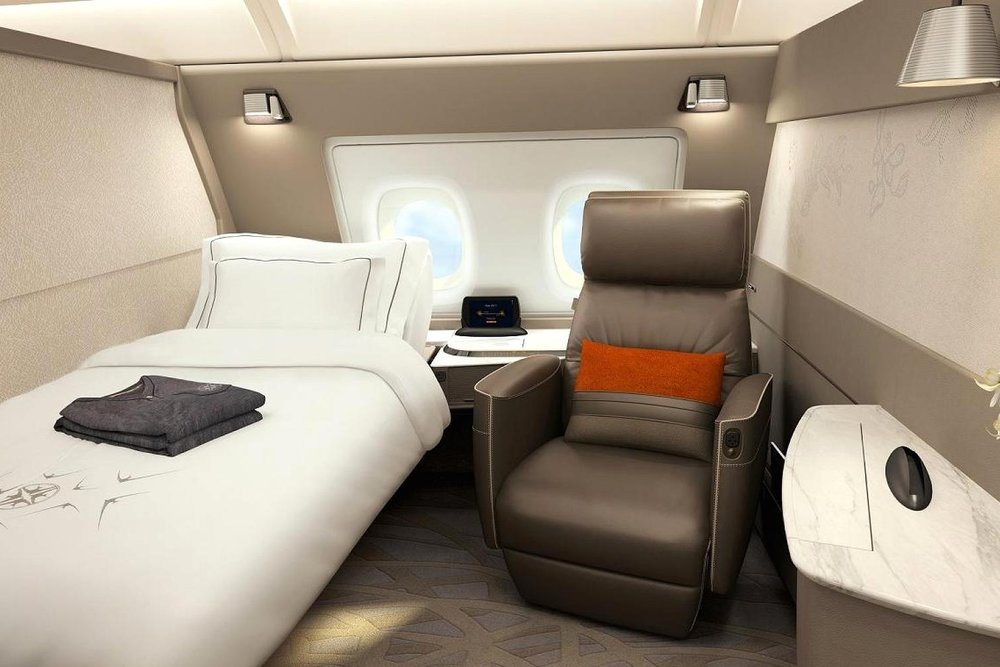
Singapore Airlines New Suites Class
Singapore Airlines generally blocks off its First & Suites Class award space from partners, instead reserving them for members of their own frequent flyer program. Given the fact that all three major US credit card rewards points can be transferred to KrisFlyer at a 1:1 ratio, getting US credit cards is definitely the way to go if you want to sample Singapore’s cutting-edge luxury cabin.
New York to Frankfurt in Suites Class costs 76,000 miles one-way, so that means that getting the Chase Ink Preferred, which offers 80,000 Chase Ultimate Rewards points after spending US$5,000 in the first three months, will be enough!
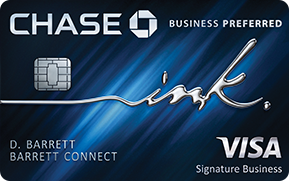
Carrying on to Singapore in Suites Class will cost you 120,000 miles in total, so throw in an American Express Premier Rewards Gold Card to grab its 50,000 MR points after spending US$2,000 in the first three months (this offer may only be available in incognito mode – that’s another fun thing to learn about along your US credit cards journey).
2. Korean Air SKYPASS
Transfer partners: Chase Ultimate Rewards (1:1)
Korean Air SKYPASS is another “niche” frequent flyer program that turns out to be useful in many ways. I’ve written in the past about how the SKYPASS program is one of the best ways to fly between North America and Hawaii, since it only charges you 25,000 miles for a round-trip flight. SKYPASS also allows you to hold awards without any miles in your account, so you can look for the award space and then earn the miles later.
The main appeal of SKYPASS is the fact that Korean Air makes an incredible amount of First Class award space available to its own members. Many flights have four or more seats available at the front of the plane, throughout the schedule. Moreover, Korean also boasts an extensive route network, offering direct flights to Vancouver and Toronto. It’s one of the few airlines that offer nonstop service to Canada with a First Class cabin.
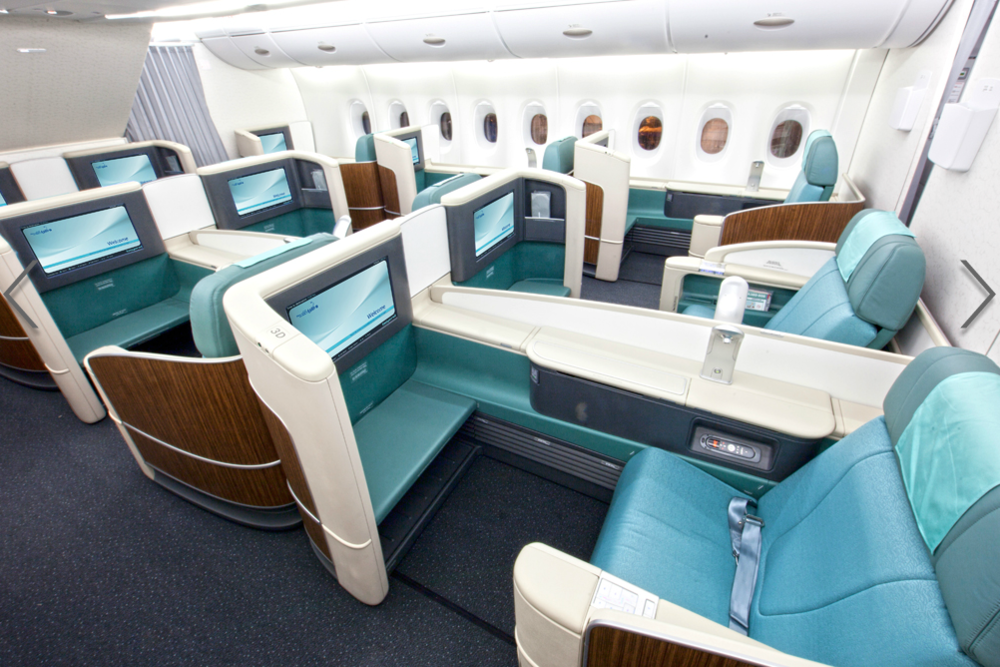
Korean Air First Class
From an availability perspective, this makes Korean Air one of the “easiest” First Class awards to book. From a points perspective, this holds true as well: North America to China, Korea, or Japan only costs 80,000 miles one-way in First Class.
Business class is a similarly good deal – one-way redemptions between North America and China, Korea, or Japan begin at 62,500 miles. Compare that to Aeroplan, which would charge 75,000 miles for an equivalent redemption.
Now, for Canadians, the trouble is that it’s hard to earn SKYPASS miles in Canada. With access to Chase cards in the US, however, that’s no longer a problem. Grab the Chase Sapphire Preferred, which offers 50,000 UR points after spending US$4,000 in the first three months.
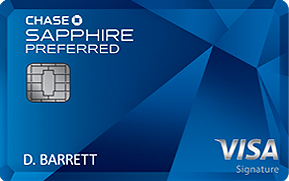
You also have the Chase Sapphire Reserve, which generated a lot of buzz when it first came to the market, due to its initial signup offer of 100,000 UR points.
That’s been lowered to 50,000 UR points now (after spending US$4,000 in the first three months), but the card retains many special features and benefits that go some way towards justifying its hefty US$450 annual fee.
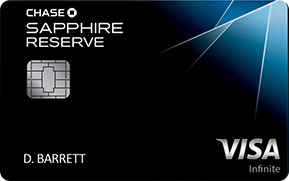
3. Air France/KLM Flying Blue
Transfer partners: Chase Ultimate Rewards (1:1); American Express Membership Rewards (1:1); Citi ThankYou Points (1:1)
Flying Blue, the frequent flyer program of Air France/KLM, is another program that can make a lot of sense in the right circumstances. One of the best deals with this program is their Promo Awards: every month they offer 25-50% off award tickets in certain markets, which allow you to score deals like Vancouver to Europe via Amsterdam or Paris, Calgary to Europe via Amsterdam, and Edmonton to Europe via Amsterdam, for only 46,875 miles per direction in business class.
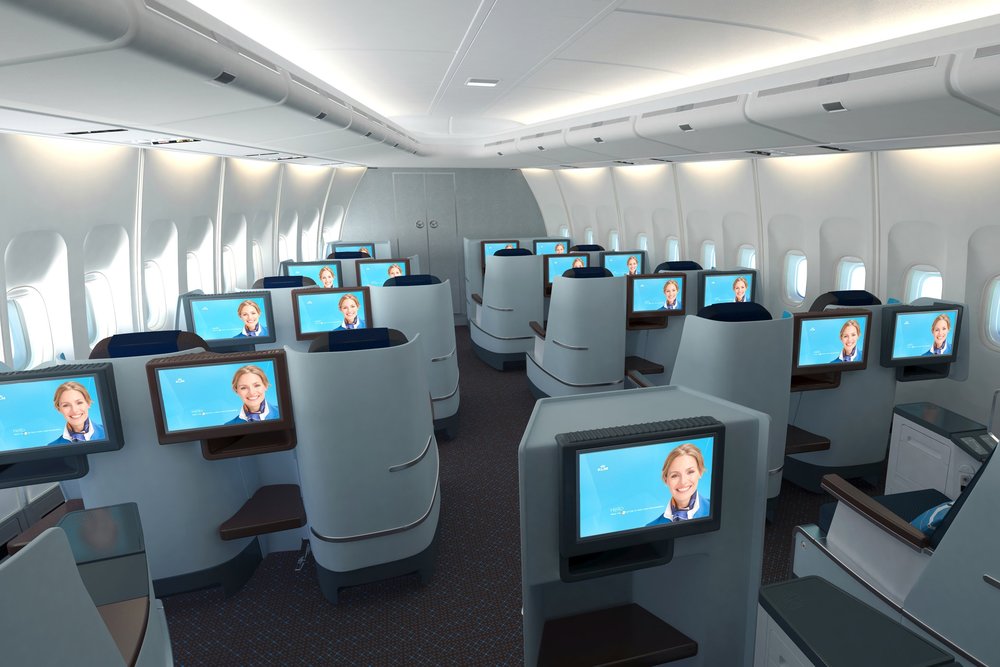
KLM Business Class
Then you have the fact that Flying Blue is a hotbed of “tricks” when it comes to award charts and routing rules. For example, most points programs classify Israel as part of a “Middle East” region or equivalent, but Flying Blue lumps it in with Europe, making North America–Israel awards a particular sweet spot. The same is true for North Africa and the Canary Islands.
Flying Blue also partners with some interesting airlines, like Air Mauritius and Aircalin, of New Caledonia in the South Pacific. If remote destinations are on your mind, this is a program you’d want to have an eye on.
It’s one of those nifty programs for which I get the feeling that we haven’t learned everything there is to know about it yet. Maybe there’s a few elements of Avianca LifeMiles hidden in there? One can hope…
Earning lots of Flying Blue miles is easy if you have a US credit file, since all three major transferrable programs give you access. The American Express Business Gold Rewards Card will get you 50,000 MR points after spending US$5,000 in the first three months, which can be enough to cover a Promo Award business class flight to Europe!
4. United MileagePlus
Transfer partners: Chase Ultimate Rewards (1:1)
United’s frequent flyer program is one that many Canadians will be familiar with, although it’s tough to earn miles while based in Canada unless you actually fly frequently on paid fares.
The standout feature of the MileagePlus program is that no fuel surcharges are levied on any Star Alliance flights. This means that flights that would typically carry several hundred dollars’ worth of fuel surcharges if booked via Aeroplan are available for much cheaper via United MileagePlus.
However, note that United charges a higher amount of miles than Aeroplan for most of their Star Alliance partner awards. In some cases, this can make the savings in fuel surcharges negligible.
For example, a Lufthansa First Class one-way award between Europe and North America costs 70,000 Aeroplan miles, plus about $400 in fuel surcharges. With United, it costs 110,000 miles but no fuel surcharges. On the whole, it’s quite even – in fact, one could very well argue that it’s better value to pay the $400 and save the 40,000 extra miles.
But in other cases, it might make sense to go with United. For example, award space to Africa can be tough to come by. With Aeroplan, you’d be paying 75,000 miles for a one-way in business class, but you might struggle to find space on carriers that don’t levy fuel surcharges.
With United, you’d pay 80,000 miles – a nominal increase – but you’d open up the possibilities of flying on Air Canada, Austrian Airlines (which features an excellent business class product), and Lufthansa without paying an arm and a leg in fuel surcharges.
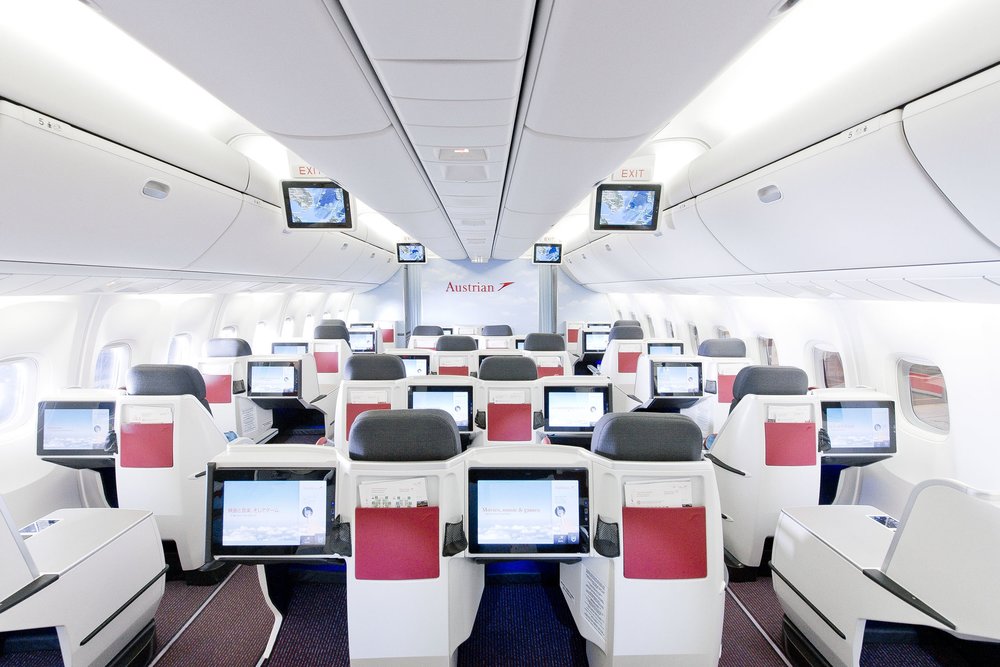
Austrian Airlines Business Class
Another relatively good use of United miles is for flying from North America to Peru. Most programs divide South America into a “Northern” part – think Colombia, Ecuador, and Venezuela – and a “Southern” part – think Brazil, Argentina, and Chile.
Aeroplan lumps Peru into “Southern South America”, making it a disproportionately expensive award, whereas United MileagePlus groups it more appropriately with Colombia et al. If Machu Picchu is on your bucket list, you can imagine the miles you’d save by going with United.
You can transfer Chase Ultimate Rewards points to United at a 1:1 ratio, but Chase also issues a United MileagePlus Explorer Card, which lets you earn 40,000 miles after spending US$2,000 in the first three months.
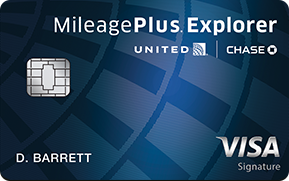
5. Virgin Atlantic
Transfer partners: Chase Ultimate Rewards (1:1); American Express Membership Rewards (1:1); Citi ThankYou Points (1:1)
Virgin Atlantic Flying Club is known for being an oddball frequent flyer program. Don’t try to redeem miles for travel on Virgin Atlantic itself, since you’ll be hit with ridiculous fuel surcharges.
Instead, focus on partner awards. In particular, redeeming Virgin Atlantic miles on ANA offers insane value. You have to book round-trip awards (one-ways are not allowed), but the mileage cost is only 95,000 miles for a business class reward and 120,000 miles for a First Class reward.
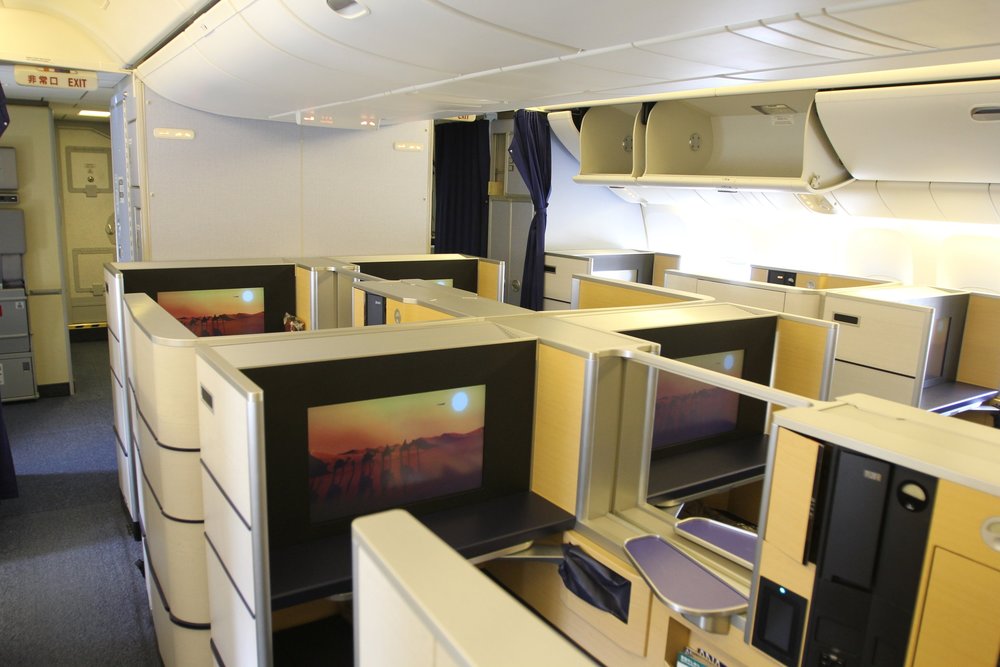
ANA First Class
ANA First Class is undoubtedly one of the most stylish ways to fly to Asia. If you redeemed a round-trip ANA award via Aeroplan, you’d be paying 150,000 miles and 210,000 miles respectively!
This incredible award chart sweet spot could be a reason to start getting US credit cards all on its own! Even better, the Flying Club program is a transfer partner of all three major US points currencies, so you can easily pool together the amount of miles you need via a wide range of credit cards. The American Express Platinum Card gets you 60,000 MR points after spending US$5,000 in the first three months, with a suite of travel benefits (similar to the Canadian version) that offset the US$550 annual fee.
6. SPG / Marriott / Ritz-Carlton
Transfer partners: Chase Ultimate Rewards to Marriott Rewards / Ritz-Carlton Rewards (1:1); American Express Membership Rewards to Starwood Preferred Guest (3:1) – not 2:1 as in Canada!
We’re all familiar with the wonderful worlds of Starwood Preferred Guest and Marriott Rewards. SPG boasts a wealth of airline transfer partners, while Marriott’s Travel Packages are the gold standard when it comes to squeezing value out of your points. But given the sheer versatility of these programs, have you ever found yourself bemoaning a lack of ways to earn these points even faster?
Indeed, we’ve lost the Chase Marriott card here in Canada, and that leaves us with just the two SPG products from American Express. What’s the solution? You guessed it… look to our neighbours down south, whose signup bonuses well and truly dwarf our own.
There’s the analogous SPG products: the American Express SPG Card and its business version, both of which offer 25,000 Starpoints after spending US$3,000 and US$5,000, respectively, within the first three months. These offers occasionally jump up as high as 35,000 Starpoints, and I’ve successfully asked to be matched to these improved offers before.
Then there’s the Marriott credit cards from Chase: likewise a personal card and a business card, both of which offer 80,000 Marriott Rewards points after spending US$3,000 in the first three months. That’s an incredible proposition! As you can see, while we Canadians are fortunate to have easy access to these great hotel programs, we can really supercharge our points balances by dipping our toes into the US market.
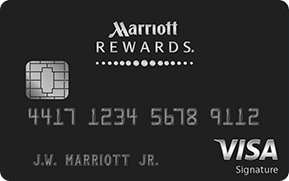
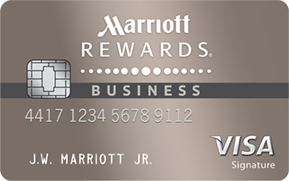
Last but not least, the Chase Ritz-Carlton Rewards Card is worth mentioning as a top-choice credit card in the US. You get a signup bonus of two free nights at an Tier 1–4 property after spending US$4,000 within the first three months, plus you get a US$300 annual travel credit, which makes light work of your US$450 annual fee if you use the travel credit twice within one membership year.
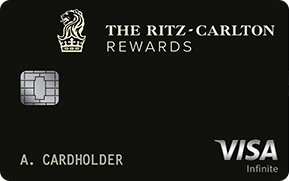
Interestingly, Marriott has announced that in light the upcoming merger between the two programs, both Chase and American Express will continue to issue the new program’s US credit cards.
7. World of Hyatt
Transfer partners: Chase Ultimate Rewards (1:1)
Let’s talk about a few hotel programs to round out the list. Here in Canada, one of the weaknesses of the travel rewards credit card marketplace is the relative lack of good hotel credit cards. It’s simply not appealing enough to the masses for a big bank like TD or CIBC to jump in with a viable product.
In the US, however, things are different. Chase, in particular, is a behemoth when it comes to travel rewards, and maintains coverage across a wide range of hotel programs. One of these is Hyatt, whose reinvented World of Hyatt program divides opinion at this moment in time. Nonetheless, there’s a very competitive signup bonus on the Chase Hyatt Card of 40,000 World of Hyatt points after spending US$2,000 within the first three months.
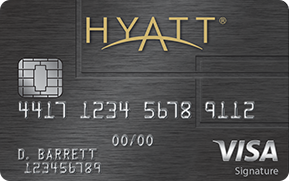
Free nights at Hyatt properties start as low as 5,000 points, so you can get some really great value out of this card. Meanwhile, the top-end properties in Hyatt’s portfolio, like most of the hotels under the luxurious Park Hyatt flag, cost 30,000 points per night. Remember that you can always transfer Chase Ultimate Rewards points directly to Hyatt as well if you need to top up your balances.
8. IHG Rewards Club
Transfer partners: Chase Ultimate Rewards (1:1)
IHG Rewards Club is another hotel program that we Canadians tend to miss out on ever since Capital One discontinued their IHG card. The Chase IHG Rewards Club Select Card currently offers 60,000 IHG Rewards points after spending US$1,000 within the first three months. However, there’s often an offer of 80,000 points on this card, so I’d advise to wait until the next one comes around!
IHG Rewards points are useful for quite a lot of things. I personally really like InterContinental hotels, and the top-end properties around the world cost between 50,000 and 60,000 points per night. You can therefore think of the signup bonus as getting you a free night in one of the world’s most luxurious hotels.
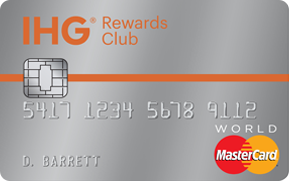
Don’t be fooled by this card’s drab appearance. The real selling point of this credit card is that you earn one free night certificate redeemable at any IHG property, every card anniversary. And yes, it’s any IHG property around the world, regardless of the retail cost. The annual fee on the card is only US$49, which means you can get $500+ worth of value every year just by doing nothing but holding on to the card!
IHG is also well-known for their quarterly PointBreaks promotion, in which select properties around the world are discounted to only 5,000 IHG Rewards points a night. Combine this with yet another excellent feature of the Chase IHG Card – a 10% points rebate on award nights – and you can stay in hotels for only 4,500 points per night.
Conclusion
We already have so many possibilities when it comes to maximizing our travel here in Canada – when you open the doors to the US, it can easily get a little overwhelming! I do hope this series is helpful for Canadians who want to get in on the credit card action on the other side of the border. We’ve discussed at length the procedure to get your credit file going, manage your US credit card portfolio, and how to make the most of the points you earn as a result to fund some truly epic trips.







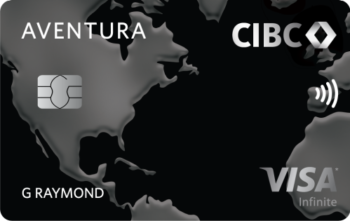


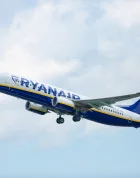

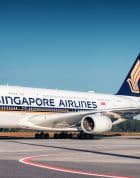


Hi Ricky Is it possible to update?
Ricky, would you consider writing another summative article on US credit cards, as well as royalty programmes for Hyatt, IHG, Radisson, and Shangri-La ?
Isn’t there plenty of other blogs summarizing the other hotel programs already? 🙂
Hi Ricky,
Do you apply for these cards exclusively online? Phone? In person?
Spoke to a rep at a nearby Chase branch and they said they don’t accept ITIN for credit card applications… did you have luck and how did you do it? Does having a Chase bank account help?
Hi Ricky,
Do you apply for these cards exclusively online? Phone? In person?
Spoke to a rep at a nearby Chase branch and they said they don’t accept ITIN for credit card applications… did you have luck and how did you do it? Does having a Chase bank account help?